
Close



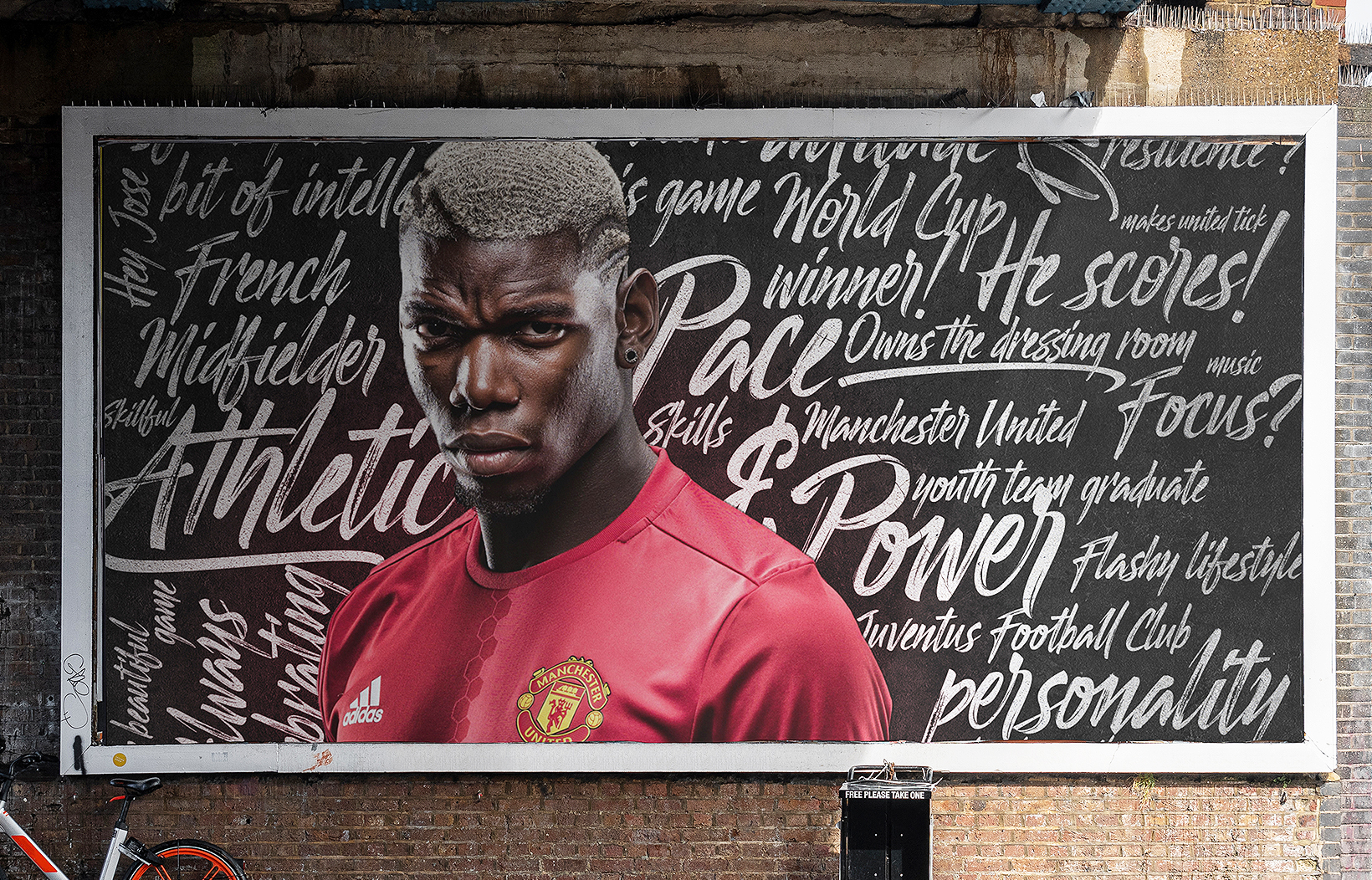
In the wake of the renewed focus on systemic racism in 2020, we worked with the PFA and data analysis company, RunRepeat, on a campaign revealing the extent of racial bias in football commentary. The impact of this powerful study resulted in sports media across the country receiving training from the PFA and BBC Sport about addressing racial bias in their work.
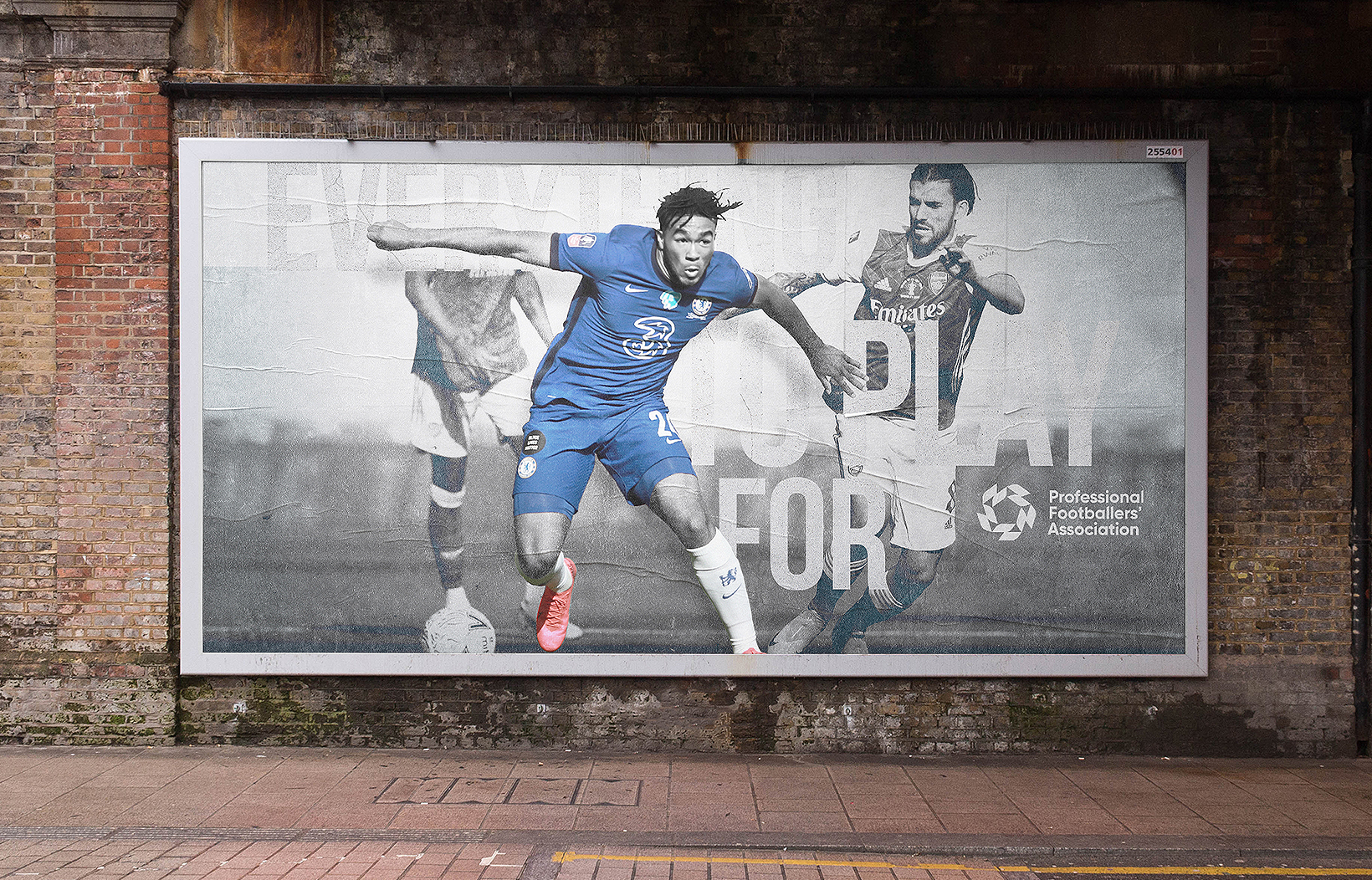
After an unsatisfactory response from social media networks, we worked with the PFA and AI company, Signify, to demonstrate the extent of racist abuse aimed at Black professional footballers. The report provided irrefutable evidence of targeted racist abuse aimed at high profile players. This data enabled the PFA to apply additional pressure on social media companies, publicly hold them to account and call for legislative solutions.
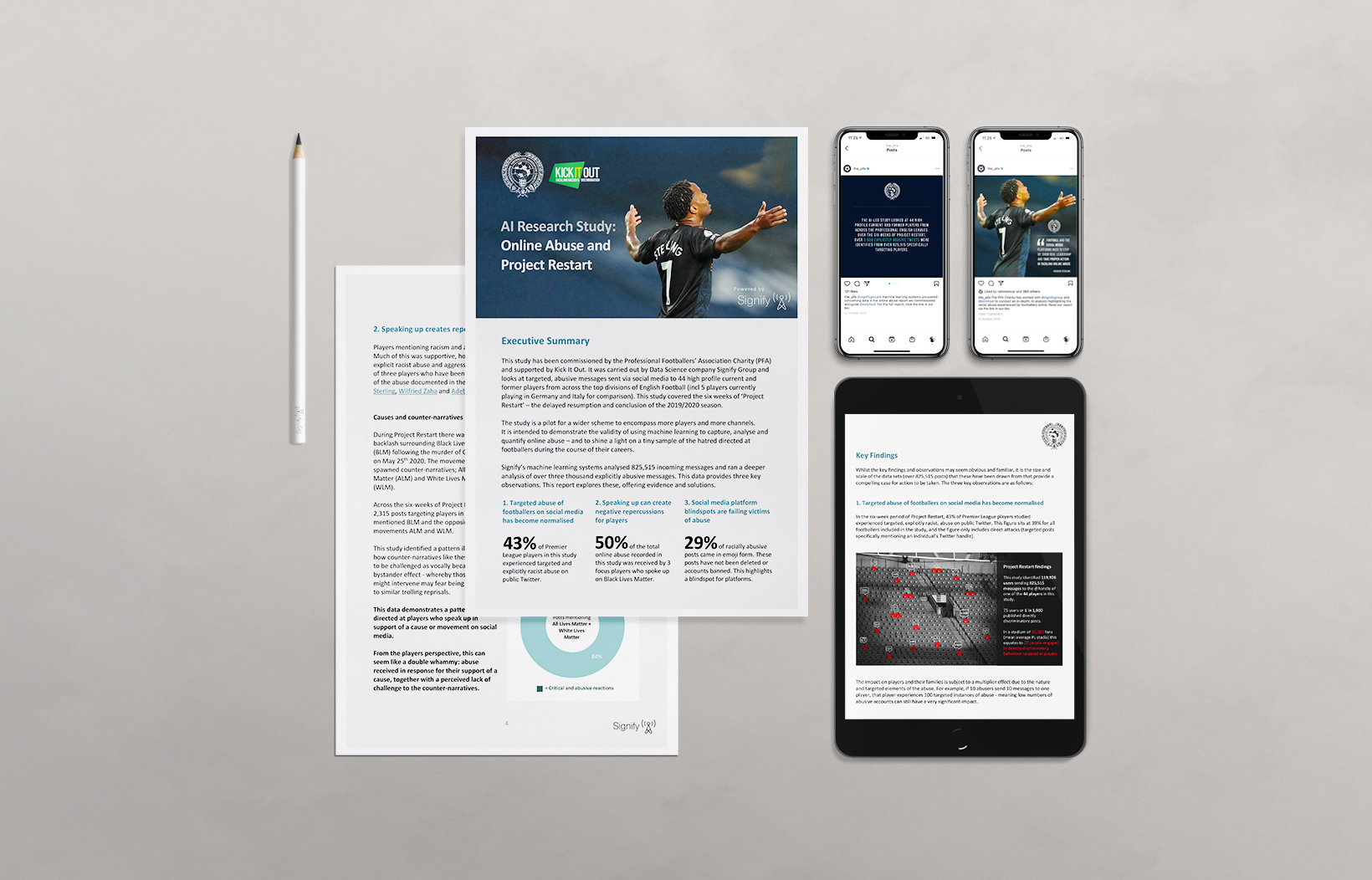
In April 2019, we helped the PFA strategise and deliver ‘#Enough’ - a 24-hour social media boycott in solidarity with players who received racist abuse online. Professional footballers across the leagues supported the boycott, with a reach of over 90 million. The campaign's success pressured the social networks into engaging with the PFA and led to industry-wide meetings focused on driving change.

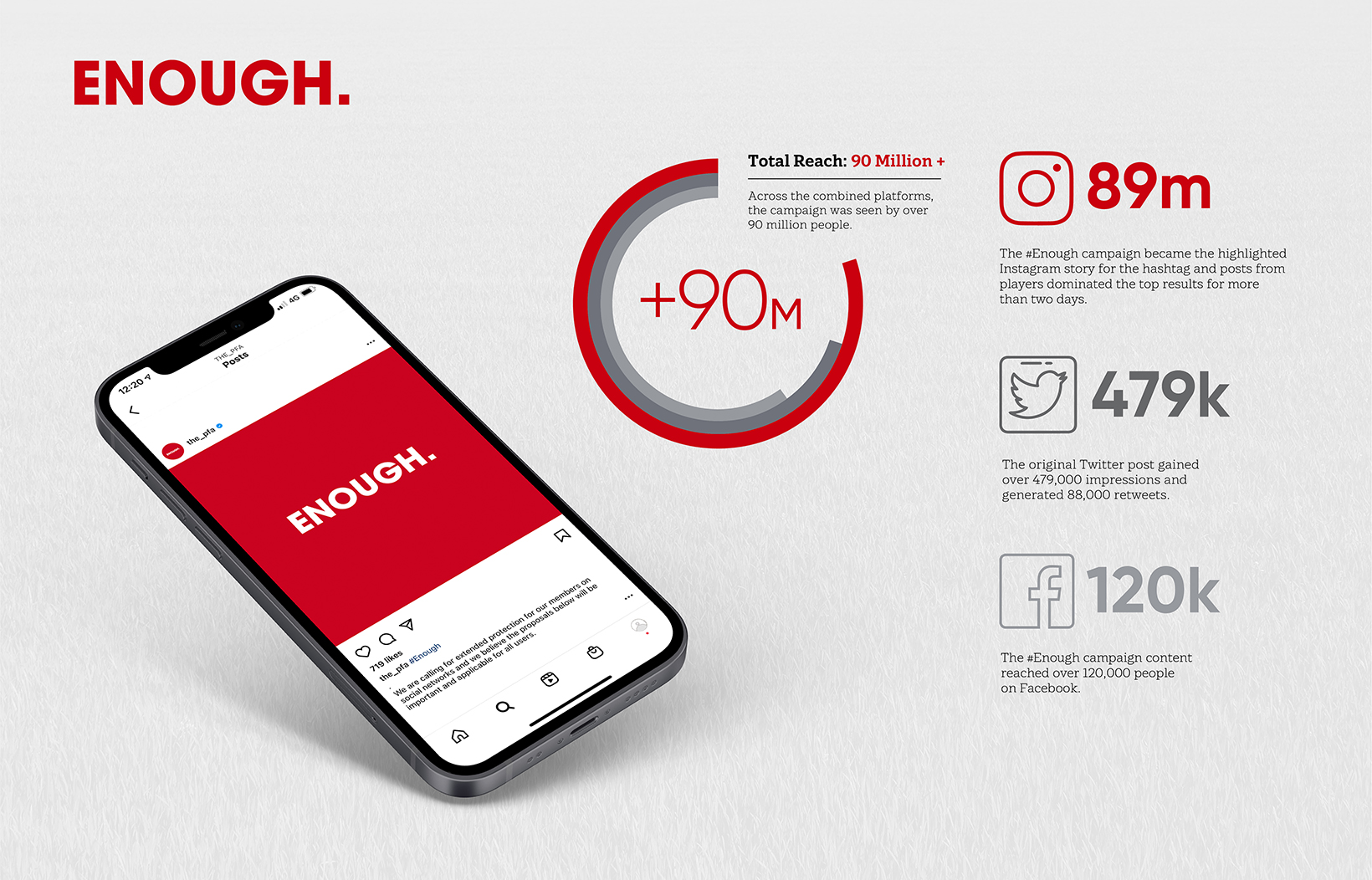
After research co-funded by the PFA Charity revealed footballers were 3.5x more likely to suffer from neurodegenerative diseases than the general population, we helped the PFA restructure their dementia messaging. Information accessibility was improved by using open and concise language, ensuring the PFA’s position on the issue was clear. Following a period of social listening, we assisted the union in reviewing their support processes for members dealing with dementia and other neurodegenerative conditions.

The Clients’ Challenge
As the union for professional footballers, the PFA must have a strong voice on key footballing issues, such as anti-racism campaigns, online abuse and players’ rights - ensuring its members' views are heard.
Traditional press coverage was no longer enough to sustain the attention of the new generation of PFA members. As such, the Comms department recognised the need for a new approach if PFA messaging was to resonate with players across the issues most relevant to their experience.
In the 18-months preceding the launch of the PFA rebrand, we worked closely with the union's Comms department to review and strategise their messaging and approach – particularly on the big topics that concerned the membership.
The Process of Change
Racial Bias In Commentary
In the wake of the renewed focus on systemic racism following the murder of George Floyd, we worked with the PFA and data analyst company, RunRepeat, to deliver a study that highlighted racial bias in football commentary. Although the study's findings were released when people were more open to discussing racism and discrimination, this was a nuanced piece of work that required careful messaging.
The study, conducted by RunRepeat, clearly demonstrated a disparity between how football commentators described players based on race. Across 80+ match transcripts, players with a lighter skin tone were more likely to be praised for their intellect, while players with a darker skin tone were more likely to be referred to by their physical attributes.
The potential impact of this regular use of lazy stereotyping is vast – affecting the perception and prospects of Black players (and people). Therefore, the campaign aimed to encourage broadcasters, journalists, players and fans to learn from the study's findings.
Because the crux of the study was about patterns of biased language rather than overt racist abuse, helping people understand why these patterns of language were problematic was a driving factor of the campaign. Inclusive messaging was crucial to avoid alienating people who lacked awareness, as they may otherwise feel defensive.
The release of the study's findings sent waves through the industry, with commentating legend, Clive Tyldesley, calling for greater training for commentators. As a result, the PFA collaborated with BBC Sport to provide training across the media industry about racial bias and the historic racist context of everyday words and phrases. The study drove actionable change, with the BBC also banning several offensive phrases from their programmes.
Online Abuse
In early 2020, we collaborated with the PFA EDI team to develop messaging and communication around a ground-breaking AI study highlighting the extent of the racist abuse players faced online.
Data from the AI study conducted by ethical data company, Signify, revealed a significant issue with racist abuse targeted at footballers online. It also detailed a pattern of abuse that saw players who spoke publicly about racism become subjected to a 'pile on'.
Supporting the PFA's Equality, Diversity and Inclusion team over a number of years, we assisted them in becoming bolder in their communication around discriminatory incidents. Undertaking this AI study formed part of a new approach to communicating the union's work in this area.
In the lead up to the release of the study's findings, we worked closely with the PFA and Signify to form messaging that clearly communicated the findings and challenged social networks to take greater responsibility for the experience of Black people and other minority groups on their platforms.
This campaign continued to apply pressure to the social networks through extended press coverage and industry support. It contributed to the decision by football's stakeholders to publish an open letter to the social media founders and CEOs calling on them to enforce meaningful changes to policies. It also formed part of the consultation with the PFA about the Government's Online Harms bill.
Enough
In 2019, following a spike in the racist abuse received by players online, we worked with the PFA on their #Enough campaign - a 24-hour social media boycott by professional footballers that reached 90 million accounts worldwide.
Conceptualised, strategised and executed in collaboration with the PFA and Marshall Communications, the campaign demonstrated the commercial leverage held by the players and the value their presence brings to the social networks. As a result, the widely publicised boycott opened discussions with social media platforms about better protecting players from online abuse.
Following the success of this campaign, we worked closely with the PFA's Equality, Diversity and Inclusion (EDI) department to form a strategy around the public messaging of the PFA's work that addresses issues of inequality and discrimination.
Dementia
We assisted the PFA in carefully navigating complex issues that impact PFA members, such as dementia in football. In 2019, the FIELD study found that footballers are 3.5 times more likely to die from neurodegenerative conditions than the general public, in research co-funded by the PFA Charity.
The release of FIELD's findings was a landmark moment in football, and we worked with the PFA to sensitively communicate its announcement. An important part of this project was working with the union to develop a clearer, more accessible way to talk about how players with a dementia diagnosis could access PFA support.
Dementia in football is an area in which the PFA had traditionally received negative coverage. Following a period of social listening, we worked closely with the union to review the feedback they had been receiving and assist them in thinking about the approach they take in family-support-focused services for former players with neurodegenerative conditions.
The Outcome
Working with the PFA to structure solid stances on major footballing issues over the past three years has strengthened the union's influence and reinforced the value of the PFA as player advocates. This encouraged more players to actively participate in the union as player delegates and governance roles.
Our comms assistance alongside the PFA's updated visual identity has elevated the external perception of the organisation and reiterated their commitment to proactively protecting players' rights, conditions and wellbeing.

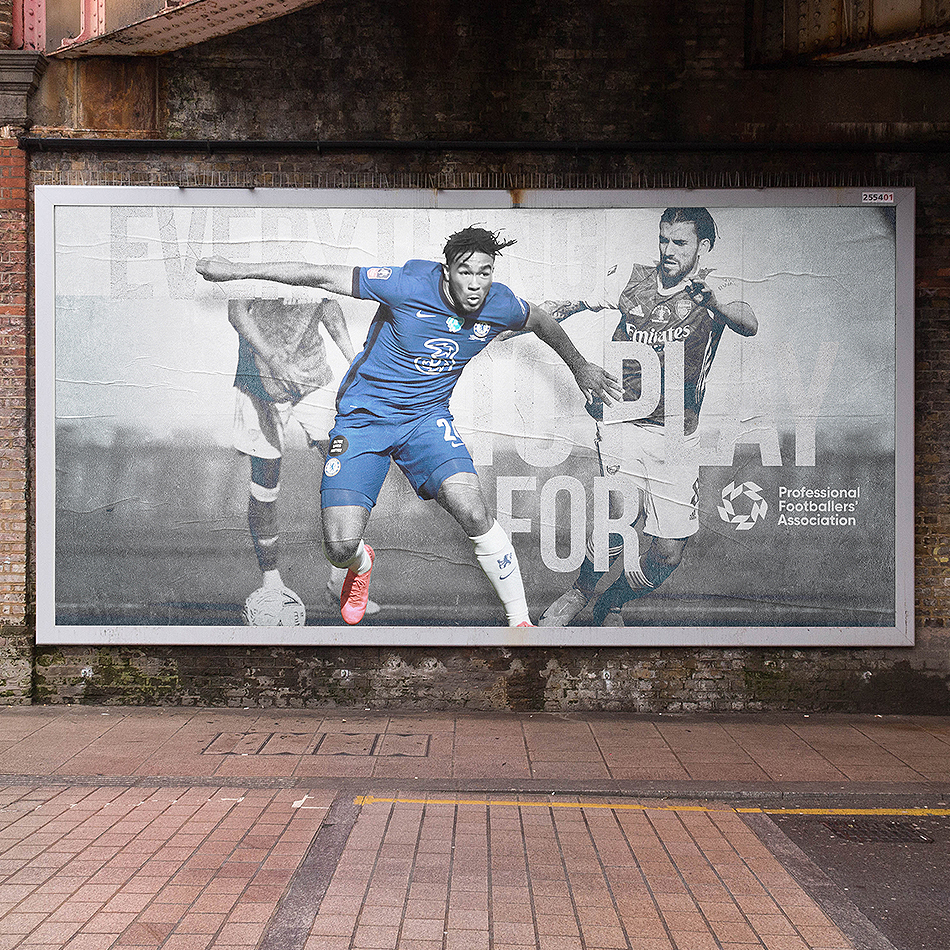
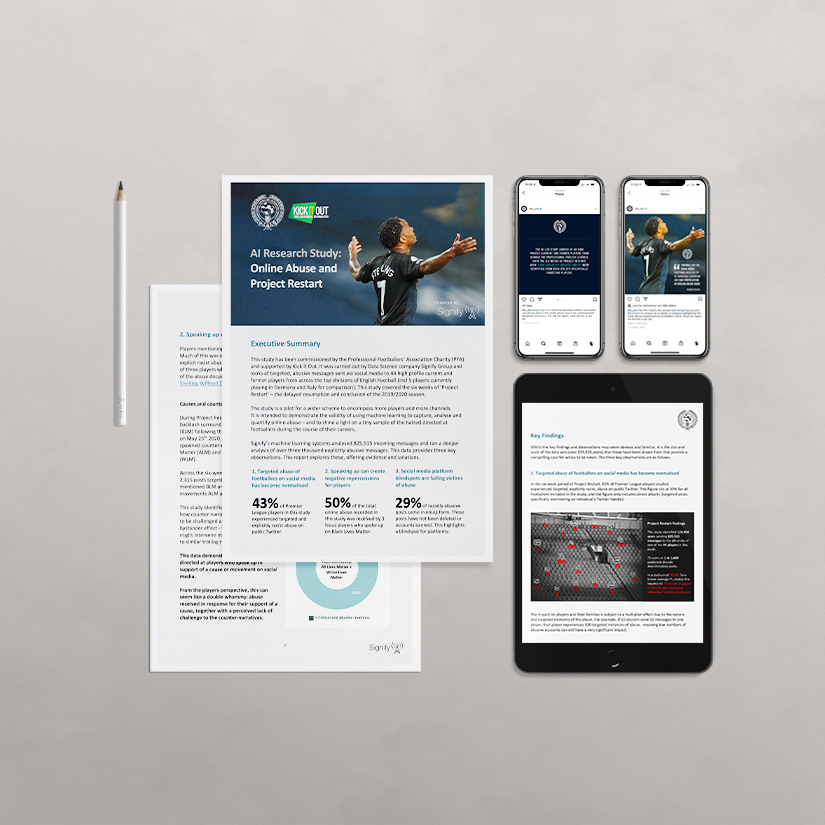
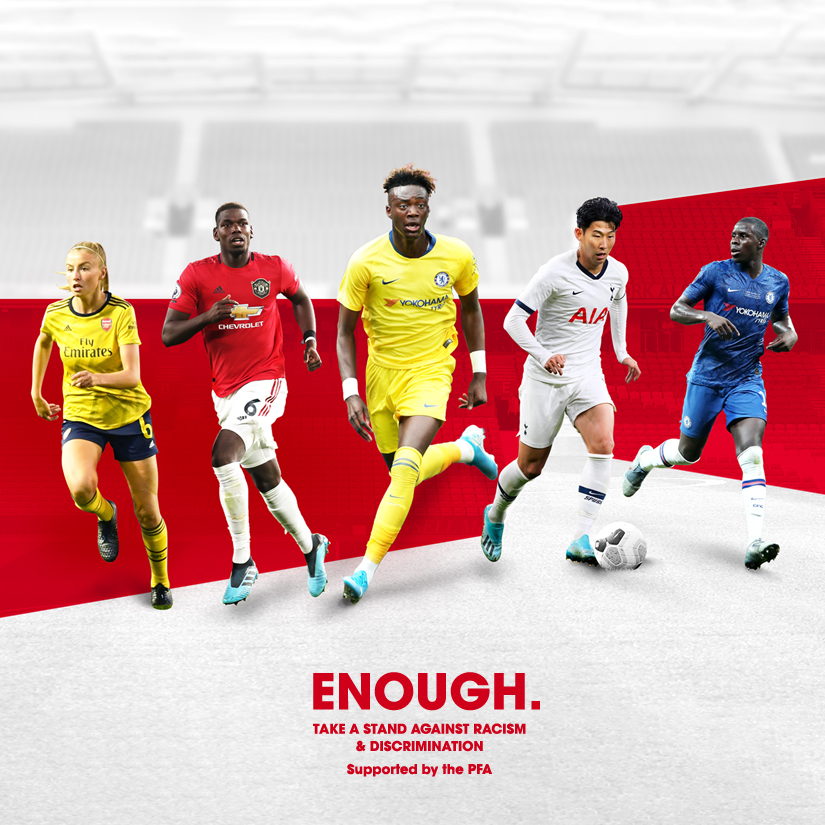
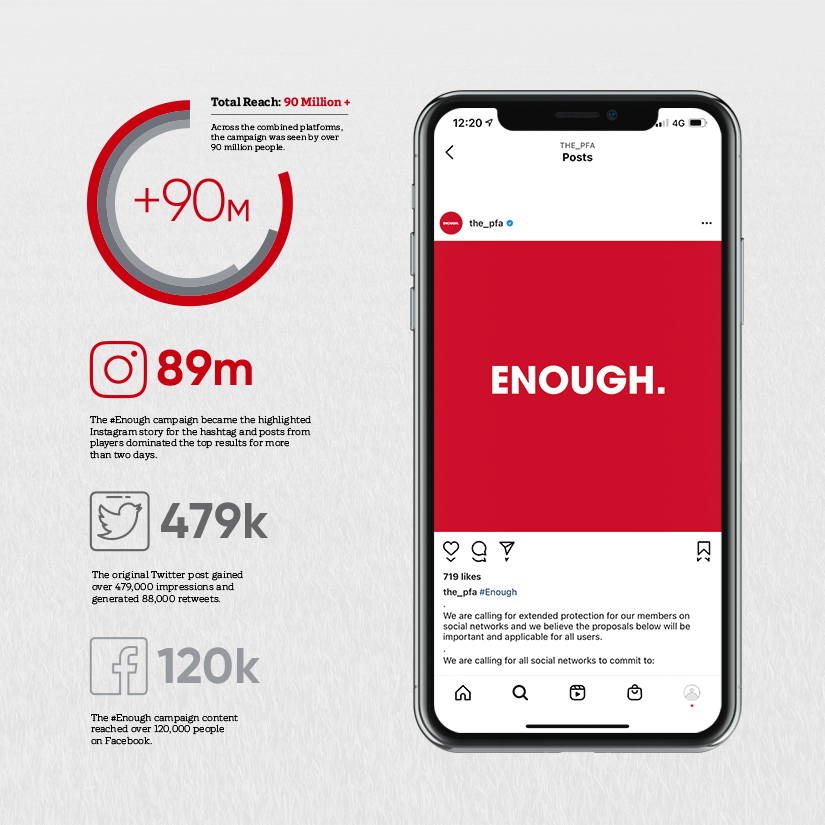


In the wake of the renewed focus on systemic racism in 2020, we worked with the PFA and data analysis company, RunRepeat, on a campaign revealing the extent of racial bias in football commentary. The impact of this powerful study resulted in sports media across the country receiving training from the PFA and BBC Sport about addressing racial bias in their work.

After an unsatisfactory response from social media networks, we worked with the PFA and AI company, Signify, to demonstrate the extent of racist abuse aimed at Black professional footballers. The report provided irrefutable evidence of targeted racist abuse aimed at high profile players. This data enabled the PFA to apply additional pressure on social media companies, publicly hold them to account and call for legislative solutions.

In April 2019, we helped the PFA strategise and deliver ‘#Enough’ - a 24-hour social media boycott in solidarity with players who received racist abuse online. Professional footballers across the leagues supported the boycott, with a reach of over 90 million. The campaign's success pressured the social networks into engaging with the PFA and led to industry-wide meetings focused on driving change.


After research co-funded by the PFA Charity revealed footballers were 3.5x more likely to suffer from neurodegenerative diseases than the general population, we helped the PFA restructure their dementia messaging. Information accessibility was improved by using open and concise language, ensuring the PFA’s position on the issue was clear. Following a period of social listening, we assisted the union in reviewing their support processes for members dealing with dementia and other neurodegenerative conditions.

Want to better align your purpose with perception? We’d love to help.